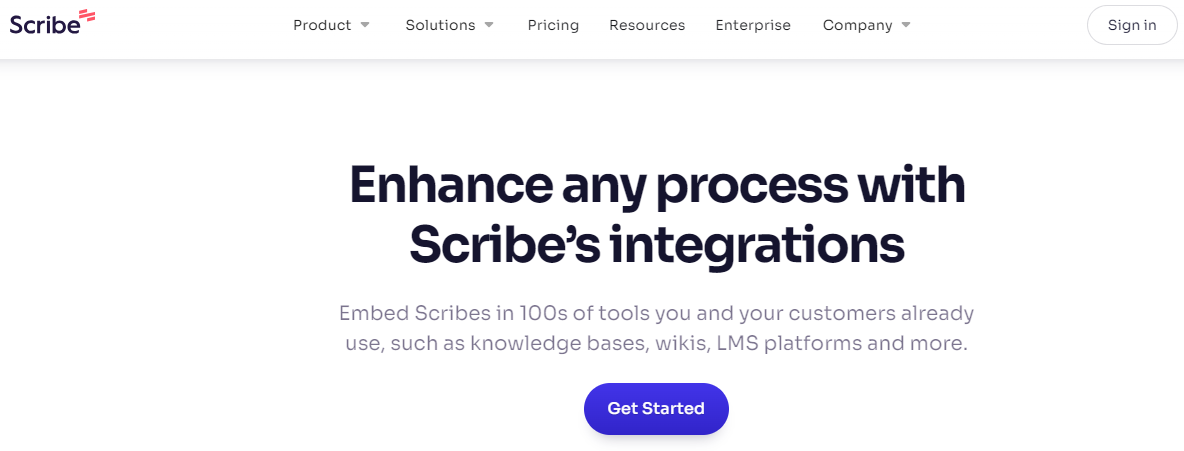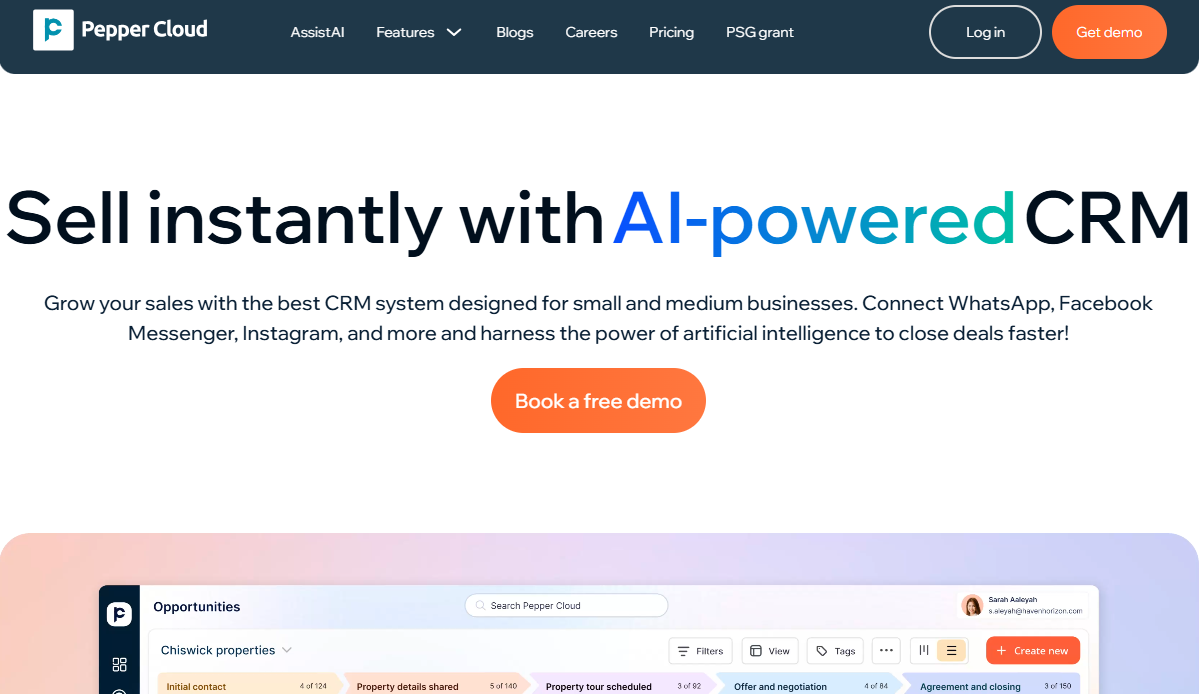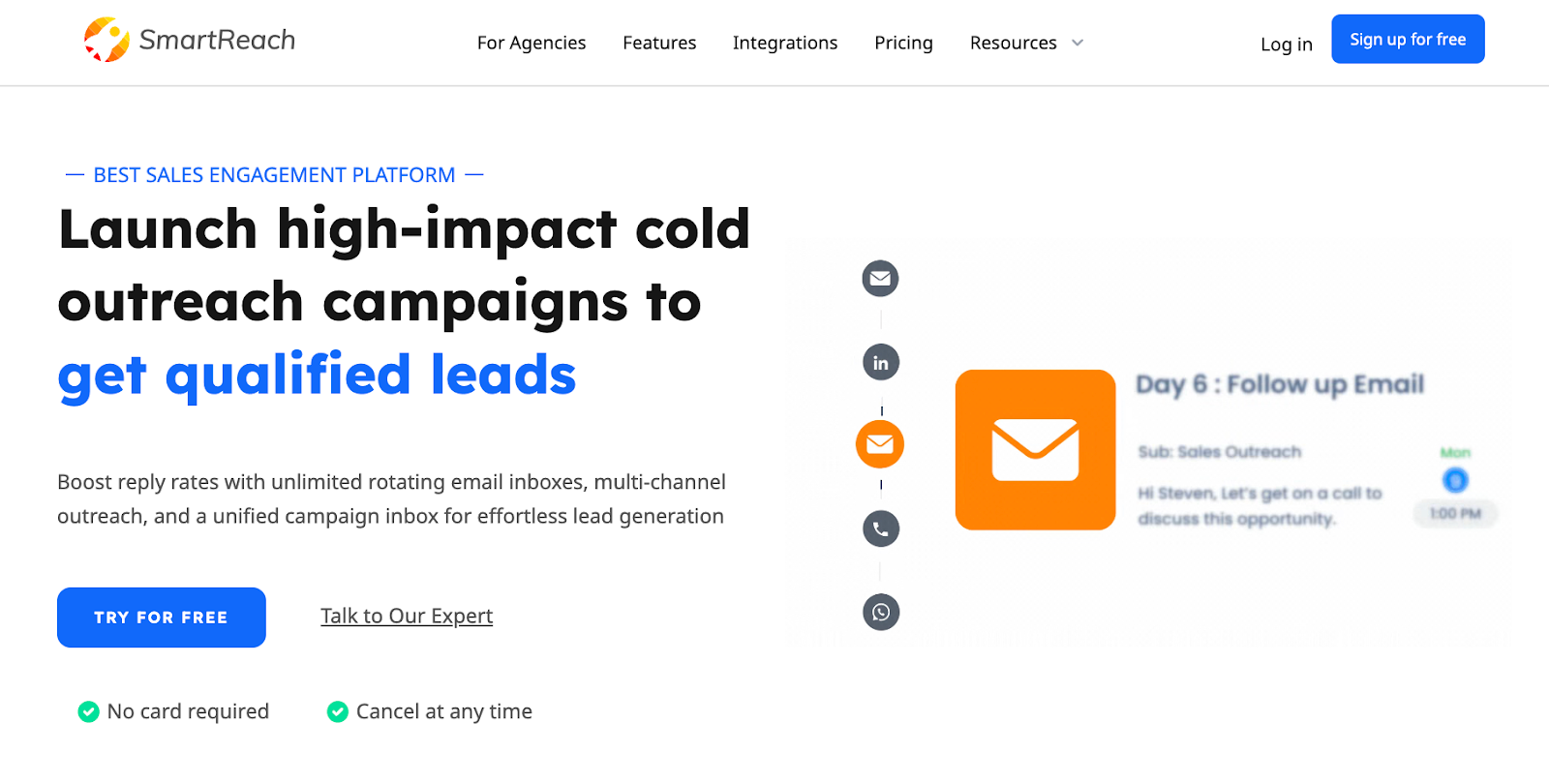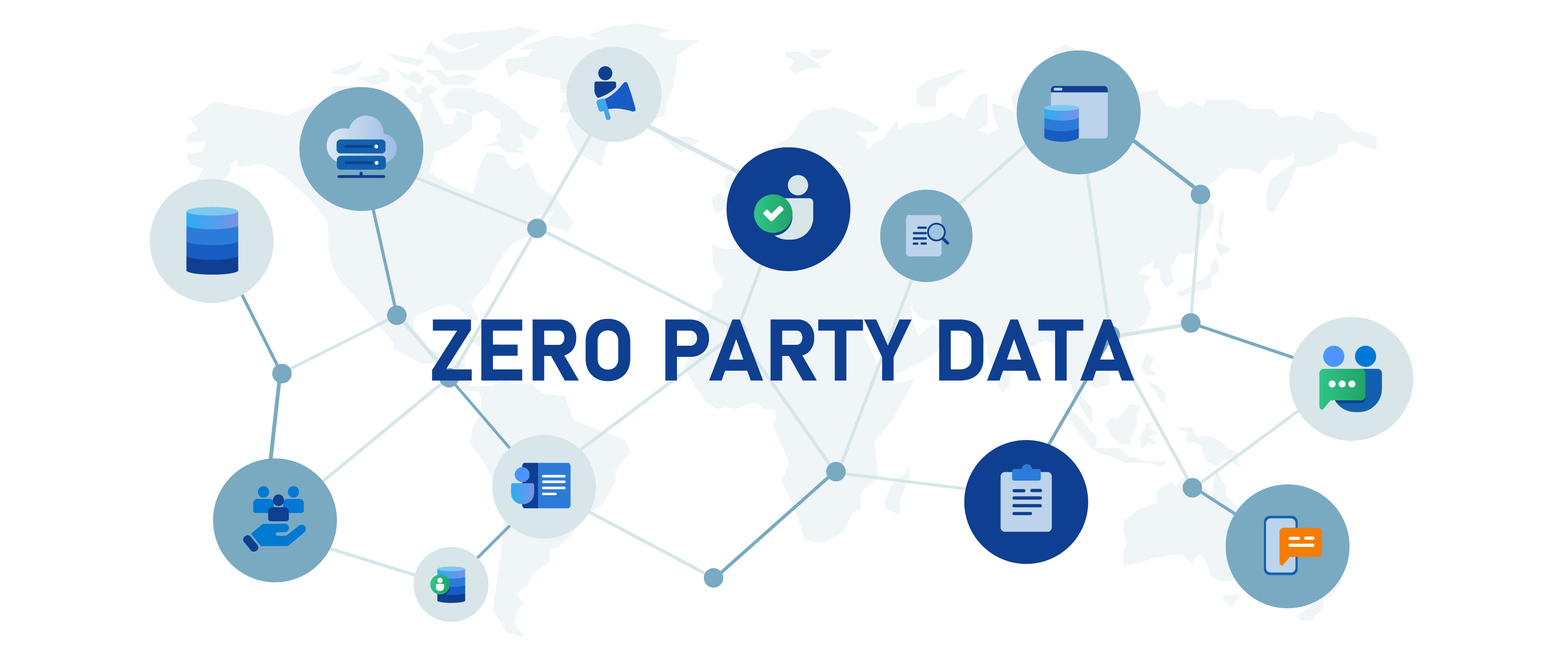14 Best Marketing Automation Tools
It's a process that involves leveraging software and technology to streamline and automate various marketing tasks and processes.
For instance, marketing automation lets businesses not only set up an automated system that captures email addresses or delivers pre-recorded product demos but also automates repetitive tasks for maximum efficiency to target the right customer at the right time.
This is true as 96% of marketers use a marketing automation platform for their business. So, if you are up for the drill, let's explore the benefits you can leverage.
Benefits Of Marketing Automation Tools
Enhanced Efficiency: Marketing automation tools are your perfect go-to to streamline repetitive tasks, reduce manual workload, and allow teams to focus on more strategic activities. With this software, you can bulk schedule, monitor, auto-respond, and track various social media channels for maximum efficiency.
Personalization At Scale: These tools can track customer web activities and purchase behavior, record and respond to them via communication channels, and enable businesses to deliver personalized content and timely marketing messages based on their preferences and behavior
Improved Lead Management: Automation helps in lead nurturing, scoring, and segmentation, ensuring sales teams receive highly qualified leads. You can do many things, including clipping prospects and lead information and sending personalized emails and follow-ups using email automation.
Data-Driven Insights: Marketing automation helps you gain insights about customers' purchase behavior. Businesses can have a high-level overview to gauge the complications and friction points and make informed decisions to refine their strategies in a timely manner. Besides this, businesses can also leverage social media analytics tools to get more actionable insights and identify patterns of brand performance.
Consistent Communication: Automation ensures consistency in the process. Customers receive auto message text, consistent messages and follow-ups on all your social media channels without any delays. This helps businesses improve their brand-customer relations and enhance their perception as well.
Increased ROI: By optimizing marketing efforts, automation tools often lead to a higher return on investment through improved targeting, reduced team workload, higher productivity, and conversion rates. In fact, 76% of companies see a return on investment within the first year of implementing their marketing automation software.
Best Marketing Automation Software
1. Leadgen App

Leadgen App is a versatile marketing automation tool designed to simplify lead generation for your website and landing pages with high-converting lead generation forms. It streamlines the process of capturing and nurturing leads, making it an ideal solution for businesses of all sizes. With the Leadgen App, businesses can capture up to 5X more leads from their web pages and create customized lead capture forms, automate follow-up emails, and segment their audience for targeted marketing campaigns. Its user-friendly interface and templates enable quick and efficient campaign setup.
Key Features:
- Online Form Design Service
- Online Form Audit
- Digital Marketing Consulting
- Form Builder
- Lead Verification
- Leadproof
Pricing:
- Pro: $39/month, Billed Yearly
- Scale: $79/month, Billed Yearly
- Enterprise: $200/month, Billed Yearly
- Exclusive: Custom Pricing
G2 rating: 4.8 out of 5
2. Statusbrew

Statusbrew stands out as a versatile social media marketing automation tool offering unique AI-driven features like sentiment detection, automated responses, and approvals. This Hootsuite alternative supports a wide range of social networks, including Facebook, Instagram, TikTok, LinkedIn, Twitter, YouTube, GMB, WhatsApp, Pinterest, App Store, and Play Store, along with bulk-scheduling content across multiple profiles and networks for up to a year. Besides this, with Statusbrew, you can also automate social engagements and leverage sentiment analysis to gauge the audience's perception of your business.
Key Features:
- AI sentiment detection
- Automate responses
- Auto workflow approvals
- Supported Networks
- Automate social media posting
- Bulk-schedule content
- Engagement automation
- Unified social inbox
- Built-in Social CRM
- Competitor reporting
- Social listening
- 200+ advanced reporting metrics
Pricing:
- Standard: $129.00 per month
- Premium: $229.00 per month
- Enterprise: Custom pricing
G2 rating: 4.7 out of 5
3. SmartReach.io
SmartReach is a sales engagement platform that helps to enhance outreach efforts for sales teams. It includes its automated email sequencing capabilities, which allow users to automate follow-ups and personalize communications at scale.
The platform provide multichannel outreach where you have the scope to reach a wider audience within a lesser amount of time. You can reach your audience via email, whatsapp, LinkedIn, message and call. You also get the flexibility to add all these channels in a single campaign sequence.
One of the features that very few sales engagement platforms provide are inbox rotation and ESP matching. You have the option to add unlimited sending email accounts within a single campaign. This increases the chances of your email landing in the primary inbox while reaching your audience at scale.
Key Features:
- Email automation
- Inbox rotation
- ESP matching
- Sales engagement
- Shared inbox
- AI content generation
- AI sequence generation
- Email deliverability
- Prospect management
- Detailed analysis
- CRM integration
- Hyper-personalization
- A/B testing
- Email verification
- Email warmup
- Spam test report
- AI reply detection
Pricing:
- Email outreach plan: Starter: $24/month
- Email outreach plan: Professional: $49/month
- Sales engagement plan: Starter: $33/month
- Sales engagement plan: Professional: $66/month
4. Freshworks

Freshworks is an effective choice for businesses that aim for better customer relationships and engagement. With Freshworks, businesses can automate various marketing tasks, from lead generation to email campaigns and analytics. Its intuitive platform empowers users to create personalized marketing workflows, schedule emails, and segment their audience effectively. Some of its best features are its customer service, IT service, and CRM, which help businesses boost sales and productivity to elevate their marketing efforts and deliver exceptional customer experiences.
Key Features:
- Customer Service & Support
- IT Service Management
- Conversational Engagement
- Marketing Automation
- Enterprise Service Management
- Sales Automation
- Customer Relationship Management
- Email campaigns and contact management
- A/B and split testing
- Real-time funnel analytics
- Integration with E-commerce platforms
Pricing:
- Free: $0 /user/month, billed annually
- Growth: $18/user/month, billed annually
- Pro: $47/user/month, billed annually
- Enterprise: $83/user/month, billed annually
G2 rating: 4.5 out of 5
5. Breadcrumbs.io

Breadcrumbs is a revenue acceleration tool that helps businesses simplify the process of lead scoring and prioritize them based on their conversion status. With Breadcrumbs.io, businesses can track visitor behavior in real time and deliver highly customized content and messages to individual users. This tool offers advanced features like dynamic website content, email retargeting, up-sell/cross-sell, retention, adoption, and lead scoring, enabling businesses to engage with their audience more effectively. It's a valuable solution for businesses looking to maximize the impact of their online presence through personalized interactions.
Key Features:
- Sort best leads
- Implement hidden intent signals
- Dynamic lead scoring
- Funneling
- Intuitive & simple UI
Pricing:
- Free Plan: $0/month
- Pro Plan: $400/month (Billed annually)
- Business Plan: $1,600/month (Billed annually)
- Enterprise Plan: $2,800/month (Billed annually)
G2 rating: 4.3 out of 5
6. Zapier

Zapier is an invaluable task automation tool that seamlessly connects your various applications and services. With Zapier, you can effortlessly set up "Zaps," automations that link different apps, all without the need for coding skills. With an extensive database of over 4,000 apps, Zapier simplifies and accelerates your work by handling routine tasks automatically. This tool empowers users to build robust multi-step workflows, incorporating over 500 integrations spanning email marketing, social media, and project management, making it an accessible, potent, and cost-effective automation solution.
Key Features:
- Multi-step Zaps
- Custom logic-paths
- Top-notch security
- More than 3000 apps
- Schedule your Zaps
- Formatter to transform dates, currency, text, and more
- Webhooks to receive data from any service
Pricing:
- Free: $0
- Starter: $19.99, billed annually
- Professional: $49/month, billed annually
- Team: $69/month, billed annually
- Company: Custom pricing
G2 rating: 4.5 out of 5
7. Scribe

Scribe is the fastest, easiest training solution for marketing teams. In seconds you can turn any workflow on any tool into a visual step-by-step guide. The AI-powered software includes a browser extension that works with any web app (Pro and Pro teams also get a desktop application). Simply turn on the software and go through your workflow. Scribe will auto-generate a guide complete with text, links and annotated screenshots.
Key features:
- Auto-generated step-by-step guides with annotated screenshots
- Customizable text, steps and images
- Generative AI features
- One-click sharing and easy-embed
- Auto- and smart-redaction
- Easy feedback tools to ensure you’re always using best practices
- Enterprise-grade security and controls
- Browser extension and desktop app
Pricing:
- Free Basic plan
- Pro Teams plan: $12/user/month
- Pro Plan: $23/user/month
- Customized Enterprise packages.
G2 Rating: 4.8 out of 5 stars
8. Sender

Being a robust yet affordable email & SMS marketing automation tool, Sender is designed to help marketers and small business owners send and automate email & SMS marketing campaigns without breaking the bank. This tool lets you grow your email list with high-converting popups, templates, and design builders. You can create automated workflows without any hassle and target the right customers using its smart segmentation.
Key Features:
- Email automation
- Email editor
- Signup forms & popups
- Automated texting service
- Text messaging
- Text blast service
- Mass texting service
- Group text service
- SMS enterprise
- Bulk SMS service
- Reports & analytics
- Integrations
- API
- Templates
- Personalization
Pricing:
- Free Forever: $0
- Standard: $8.33, billed yearly as $100
- Professional: $29.17, billed yearly as $350
- Enterprise: Custom Price
G2 rating: 4.4 out of 5
9. Keap

Although primarily known as a customer relationship management software, Keap has some noteworthy marketing automation features that can work well for businesses looking for a reasonably priced tool. This tool is designed to streamline the communication with your potential leads, creating a personalized connection and eliminating much of the manual work. Small businesses can leverage this tool to build emails, streamline workflows, follow-ups, billing, contact management, and use pre-built templates.
Key Features:
- Appointments
- Automation
- CRM
- E-commerce & payments
- Email marketing
- Integrated sales and marketing automation
- Landing pages & forms
- Lead management
- Reporting and analytics
- Sales pipeline
- Phone line and Text Marketing
- Smart subscription form builder
Pricing:
- Pro: $159 /mo (Billed at $1908/year)
- Max: $229 /mo (Billed at $2748/year)
- Max Classic: Custom Pricing
G2 rating: 4.2 out of 5
10. Avada

Designed for small to medium business like spa that requires an easy-to-use but convenient solution for their marketing activities, the Avada spa marketing automation tool can be the best bet as it helps marketers automate the email workflow for streamlined results and ROI. It also integrates with popular platforms like Shopify and Magento to lift up your campaign’s targeting and performance.
Key Features:
- Automation
- Newsletters
- Reports
- SMS
- Segments
- Popup & Spin to Win
- Automated email marketing
- Email Segmentation
- Email builder
- Automated website popups
Pricing:
- Free: $ 0 / mon
- Pro: From $ 16 / mon
- Advanced: From $ 47 / mon
- Enterprise: Custom Pricing
G2 rating: 4.9 out of 5
11. Agency Analytics

Renowned as one of the best all-in-one integrated reporting tools, AgencyAnalytics is suitable for agencies and businesses aiming to automate their report-generation process. With its smooth, customizable marketing dashboards, businesses can monitor their clients’ marketing channels, track rankings daily, monitor backlinks, and perform technical SEO audits for the best results.
Key Features:
- Automated Reports
- Custom Dashboards
- White Label
- Client & Staff Management
- SEO Tools
- 75+ Integrations
Pricing:
- Freelancer: $12USD/month
- Agency: $18USD/month
- Enterprise: Custom
G2 rating: 4.7 out of 5
12. Customer.io

Having one of the most user-friendly UI, Customer.io is known for its flexibility, customization, and many integrations that help funnel data from various technology stacks into automated segments and email campaigns. Businesses that want to automate their messaging campaigns should go for this tool as it gives access to real-time behavioral data, besides creating personalized messages to retain customers.
Key Features:
- Direct integration and Third-Party integration
- Customer segmentation to see individual profile data
- Retargeting segments into Ad audiences
- Transactional API
- User-friendly interface
- Personalized messages with collections
- Connect with customers through newsletters
- Real-time data to rely on
- Best-in-class technical support
- Onboard new customers
- Renew existing customers
- Nurture leads
- A/B testing and conversion tracking
Pricing:
- Essentials: Starts at $100/ month, billed monthly
- Premium: Starts at $1,000/ month, billed annually
- Enterprise: Custom
G2 rating: 4.4 out of 5
13. GetResponse

With over 25 years of expertise, GetResponse is a comprehensive email marketing platform that has been the consistent go-to for many small businesses and marketers for its affordability, and robust 24/7 customer support. Besides this, the powerful features like drip campaigns, contact scoring, event-based automation, E-commerce tracking, and friendly UI make it a must-try for businesses looking for advanced marketing features and reliable support.
Key Features:
- Email marketing
- Autoresponders
- AI email generator
- Website Builder
- Landing pages
- Marketing automation
- SMS marketing
- Web push notifications
- Conversion funnel
- Live chats
- E-commerce integrations
- Popups and forms
- AI recommendations
- Paid ads
- Webinars
- Affiliate Program
- 100+ integrations
Pricing:
- Free: $0.00/mo
- Email Marketing: $15.58/mo, billed every year
- Marketing Automation: $48.38/mo, billed every year
- Email Marketing Plus: $97.58/mo, billed every year
G2 rating: 4.2 out of 5
14. Pepper Cloud

Pepper Cloud is an all-in-one AI-powered sales CRM software designed for small and medium-sized businesses. It features robust marketing automation features like workflow automation, UTM automation, email automation, WhatsApp marketing automation, in-built webforms for automatic lead capture, auto-lead assignment to sales reps, omnichannel integration, and more.
Furthermore, its WhatsApp CRM integration enhances functionality by enabling sales and marketing automation, multi-device access, chatbots, advertising, campaign broadcasting, and catalogs. This helps businesses streamline processes and execute targeted campaigns with real-time notifications and valuable insights.
With its generative AI technology, AssistAI, Pepper Cloud elevates sales productivity by auto-capturing and nurturing leads, automating the chat flows, managing tasks and activities, and more—all with precision and ease. Its no-code AssistAI chatbot can be deployed across multiple channels to handle customer queries instantly, escalate complex issues to human agents, and deliver 24/7 customer support.
Key features:
- Powerful WhatsApp integrations
- AI-Powered Tool
- Sales and marketing automation
- In-built webforms with UTM tracking feature
- Omnichannel support
- Sales pipeline management
- Sales forecasting
- AI and WhatsApp chatbot
- Communication enhancement
- Email marketing
- Generative AI features
- Must-have integrations
- Customizatble
- Secure platform
- Personalization
- Affordable pricing
Pricing:
- Starter: Quote-based pricing
- Business: Quote-based pricing
- Enterprise: Custom pricing
- G2 Rating: 3.5 out of 5 stars
Closing Words
While marketing automation is a relatively young and growing concept, businesses aspiring to streamline their workflow and maximize efficiency can be picky about choosing the tool best suited for their needs. While there is no one-size-fits-all solution, you can surely go for the one that resonates with your budget, objectives, and requirements. Once set, these marketing automation tools can take your business strategy to new heights, allowing you to spend less time on manual work and more on growing the business.
FAQs
Q1: What are marketing automation tools used for?
The function of marketing automation tools is to save time, automate repetitive tasks, reduce human error, and increase efficiency to boost your team's productivity. Instead of doing things manually, they can focus on more strategic tasks, such as campaign planning, design, and strategizing.
These versatile tools also streamline and enhance various marketing campaigns and customer engagement aspects. They serve multiple crucial purposes:
- Automation tools facilitate the creation and delivery of personalized email campaigns, including drip campaigns, newsletters, and transactional emails.
- These tools help capture leads from various sources, ensuring a steady flow of qualified prospects for sales teams.
- Marketers can categorize customers based on behavior, demographics, and preferences.
- Automation tools monitor customer behavior on websites, email interactions, and social media, providing insights.
- They assist in scheduling and publishing social media posts and tracking engagement and performance metrics.
- These tools offer comprehensive analytics and reporting to make data-driven decisions.
- Automation tools streamline internal processes, reducing manual tasks and improving collaboration among marketing teams.
Q2: What are the different types of marketing automation?
Marketing automation encompasses various types of automation, each tailored to specific aspects of the marketing process:
- Email Marketing Automation focuses on automating email campaigns, including drip campaigns, personalized email sequences, and automated responses to customer actions.
- CRM automation streamlines customer data management, lead scoring, and sales processes.
- Social Media Automation schedule and publish social media posts, track engagement, and provide insights for optimizing social media strategies.
- Content Marketing Automation involves automating content creation, distribution, and promotion.
- Analytics and Reporting generate detailed reports on campaign performance, providing detailed insights.
- Workflow Automation automates internal processes, such as approvals, task assignments, and collaboration among marketing teams.
- E-commerce Automation automates tasks like abandoned cart emails, product recommendations, and order follow-ups.
- Ad Campaign Automation optimizes digital advertising campaigns by automating ad placement, targeting, and budget allocation.
By leveraging these different types of marketing automation, businesses can efficiently manage various aspects of their marketing efforts, improve customer engagement, and drive better results.
Q3: Are there any free marketing automation tools?
Yes, several free marketing automation tools are available, although they often have limitations compared to their paid counterparts. Here are a few notable options:
- MailChimp
- HubSpot CRM
- Sender
- Avada
- GetResponse
- Breadcrumbs.io
- Zapier
- Freshworks
While these free tools can be a good starting point for smaller businesses and startups, they often come with limitations on the number of contacts, emails, or features. As your business grows and your automation needs become more sophisticated, you may consider upgrading to paid plans or more robust marketing automation platforms to access advanced features and scalability.
Q4: How do you choose the best marketing automation tool?
Choosing the best marketing automation tool is a critical decision that hinges on several key factors:
- Budget and Business Needs: Determine how much you're willing to invest in a marketing automation tool. Keep in mind that while there are free or low-cost options, more advanced features often come with higher price tags. Ensure the chosen tool can grow alongside your evolving needs.
- Consider Ease of Use: Ensure the tool is user-friendly for your team. Complex platforms may require extensive training, which can impact productivity.
- Analytics and Reporting: Ensure the tool provides robust analytics and reporting capabilities. It should track metrics relevant to your goals and offer advanced reporting features, especially for complex B2B and enterprise environments.
- Integration Compatibility: Investigate how well the automation software integrates with your existing software stack, such as CRM, e-commerce, and analytics tools. Compatibility is crucial for seamless data flow.
- Potential Limitations: Be aware of any limitations, such as monthly action caps or database size restrictions. Understand your contact volume, email frequency, and the software's intended objectives to avoid underestimating costs.
- Trial Period: Whenever possible, take advantage of free trials or demos to test the tool's functionality and suitability for your business.
- Customer Support: Assess the level of customer support and training provided by the tool's provider. Reliable support can be crucial for resolving issues and optimizing your use of the tool.








